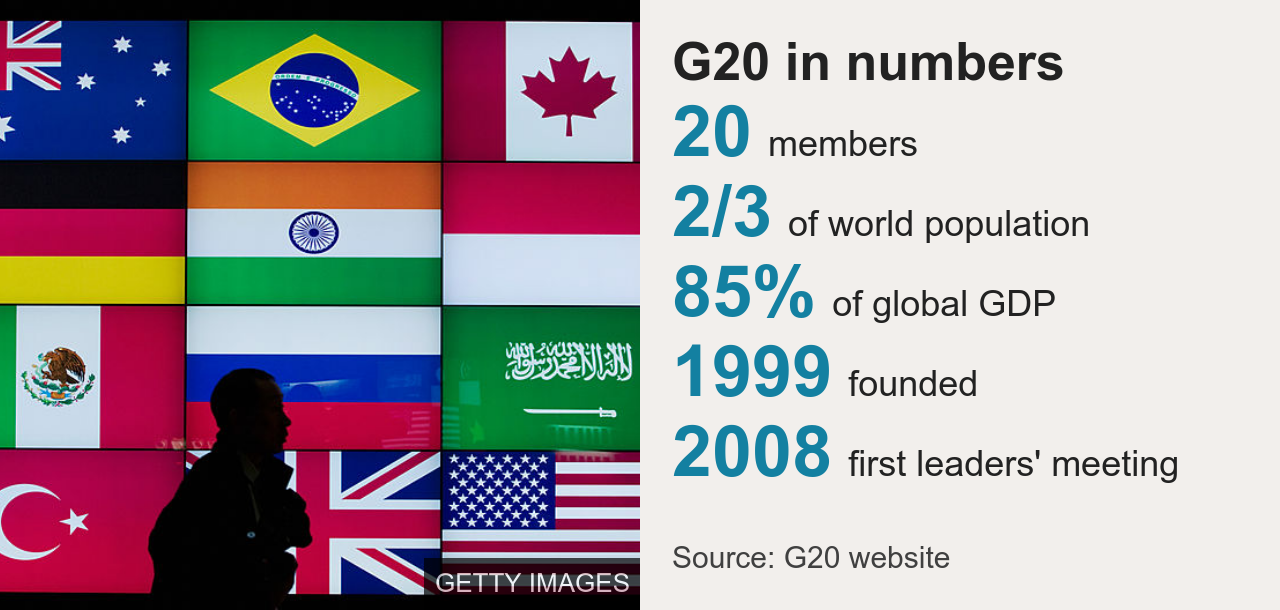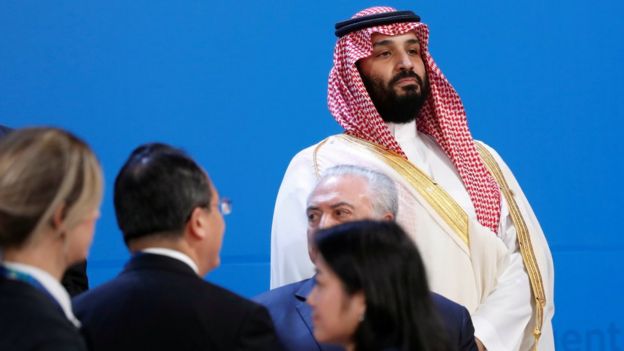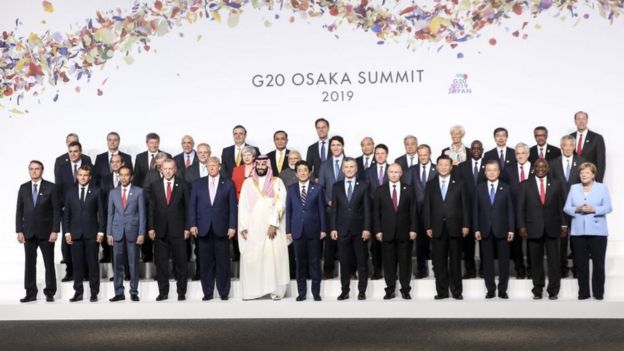They are the "Group of 20" – G20 for short – but what exactly is the summit about, and why is it important?
What is the G20?
The G20 is an annual meeting of leaders from the countries with the largest and fastest-growing economies. Its members account for 85% of the world's GDP, and two-thirds of its population.

The group has no permanent staff of its own, so every year in December, a G20 country from a rotating region takes on the presidency.
That country is then responsible for organising the next summit, as well as smaller meetings for the coming year.
They can also choose to invite non-member countries along as guests. Spain is always invited.
The first G20 meeting took place in Berlin in 1999, after a financial crisis in East Asia affected many countries around the world.
The existing Group of Eight (G8) club of the world's richest economies was expanded to include fast-growing economies like China, Brazil, and Saudi Arabia – though the G8 has since dropped Russia and is now the G7.

At first, the G20 was mostly attended by finance ministers and central bank governors.
That changed after the global financial crisis in 2008. With banks collapsing, unemployment rising and wages stagnating, the organisation turned into an emergency council for presidents and prime ministers.
Now, they always attend.
What does the group discuss?
The world leaders get together to discuss the most important financial and economic issues of the day.
Members then try to make sure that their plans are co-ordinated.
It's expected that trade, climate change and the crisis in relations with Iran will be big topics this year.
Leaders also have many important talks on the side-lines of the summit.
There is a lot of interest in who US President Donald Trump is meeting up with.
Separate talks are set to take place between Mr Trump and Chinese President Xi Jinping; and between Mr Trump and Indian prime minister Narendra Modi to talk about tariffs - extra taxes on imports and exports.
The outgoing Prime Minister Theresa May will also meet with Russian leaders.The world economy is often the key topic of conversation at the G20.
For example, at the 2009 summit in London, world leaders committed themselves to a $5tn (£4tn) injection into the global economy. This was to try and curb the worst effects of the financial crisis.
But other topics are often covered: for example, the forum debated how to manage a partial cease-fire in Syria at the 2017 summit.
Why is there a 'family photo'?
The heads of government often pose together for a group photograph.
It is used as an opportunity to sell whatever agreements the leaders have signed – but it is often the disputes that make headlines.

Saudi Crown Prince Mohammed bin Salman stood largely alone last year
Last year, few world leaders went out of their way to shake hands with Saudi Crown Prince Mohammed bin Salman. He stood on the far right of the photo and was largely ignored.
It was the first time he had appeared on the international stage since the murder of journalist Jamal Khashoggi at a Saudi consulate in Istanbul.
Is the G20 a success?
It's been suggested that the group's small size can be a curse and a blessing.
Having a small number of leaders involved might mean that decisions can be made more quickly.
But it has been argued that excluding a large number of countries from important discussions isn't fair. About 170 countries aren't invited to the meetings.
It has also been dismissed as a "talking shop", where little real progress is made.

Theresa May, Angela Merkel and Christine Lagarde were the only women in this 'family photo'
There are no formal votes at the meetings and its agreements aren't legally binding. Nevertheless, it's been said that if it didn't exist, it would need to be invented anyway.
Often, big demonstrations take place around the summit.
In 2009 Ian Tomlinson, a newspaper seller, was killed in G20 protests in London after being caught up in protests on his way home.
Thousands of demonstrators marched in Buenos Aires to protest the G20's economic policies last year.
This year, protests against Hong Kong's extradition bill have been planned ahead of the summit.
 info@businessghana.com
info@businessghana.com


















